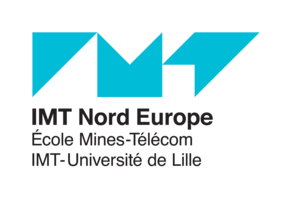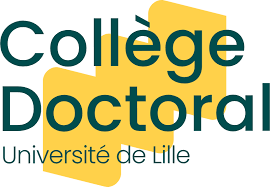Doctoral Studies Directorate (DED)
![[Translate to English:] Directions d'études doctorales](/fileadmin/user_upload/edsmre/Images/reunion_conseil.png)
The SMRE Graduate School is organized into various scientific fields based on its scientific scope and size. Each of them is represented by one or more Director of doctoral studies (DED)
The DEDs assist school management and monitor doctoral training progress. They are part of the Pedagogy Committee at the school and act as liaisons between the school and doctoral students in their research sectors
Vincent PHALIP - BioEcoAgro - UMET
- Molecular and Cellular Aspects of Biology (DS5)
- Food biotechnology, Food Science, Physiology (DS10)
- agronomics sciences (DS10)
Xavier VEKEMANS - EEP - LGCgE
- Biology of the Environment, Organisms, Populations, Ecology (DS10)
- Earth and Universe Sciences (DS3)
Nicolas TRIBOVILLARD - LOG - LGCgE
- Biology of the Environment, Organisms, Populations, Ecology (DS10)
- Earth and Universe Sciences (DS3)
Fréderic PAROL - LOA
- Earth, fluid envelopes (DS3)
- Diluted media and fundamental optics (DS2)
Céline TOUBIN - PhLAM
- Diluted media and fundamental optics (DS2)
- Energy, Heat, Combustion (DS8)
Justine CRIQUET - LASIRe - CERI EE - PC2A
- Energy, Heat, Combustion (DS8)
- Dense media, materials and components (DS2)
- Earth, fluid envelopes (DS3)
- Theoretical, Physical and Analytical Chemistry (DS4)
- Organic, Inorganic and Industrial Chemistry (DS4)
Jean-François PAUL - UCCS - MSAP
- Theoretical, Physical and Analytical Chemistry (DS4)
- Organic, Inorganic and Industrial Chemistry (DS4)
- Materials Chemistry (DS4)
Sylvie DAVIERO - UCCS
- Materials Chemistry (DS4)
Maude JIMENEZ ou Ingrid PRORIOL-SERRE - UMET - CERI MP
- Materials Chemistry (DS4)
- Dense media, materials and components (DS2)
- Mechanics of Solids, Materials, Structures and Surfaces (DS8)
Research Missions and Roles
- Work as a link between the Graduate School and the research areas (laboratories)
- Liaise with doctoral students and ensure close follow-up within the research groups
- Welcome and inform each doctoral student on their arrival in the laboratory
- Carry out an annual interview with each doctoral student, before each renewal of registration :
- Building/evaluation of the study plan
- Awarding training credits
- Making progress on the thesis/Possible difficulties
- Promoting the thesis (publication(s), oral communication, etc.)
- Approving the appointment and report of the individual examining committee
- If a candidate wishes to renew their registration for the 4th year and their thesis defence is scheduled after the first quarter of the year, they will participate in a meeting with their individual examining committee
- In case of any issues during the doctoral study period, the DED participates in a mediation meeting
- At the beginning of the doctorate thesis submission steps :
- Evaluating the necessary training courses/Modules
- Evaluating the required promotion (publications, conferences, etc.)
- Controlling the appointment of the thesis defence examining committee
Relevant institutions: University of Lille , IMT Nord Europe , Centrale Lille Institute
Disciplinary field of research: Science and technology (ST)
Scientific fields (DS) :
- 2 - Physics
- 3 - Earth and Universe Sciences, Space
- 4 - Chemistry
- 5 - Biology, Medicine, Health
- 8 - Engineering Sciences
- 10 - Agricultural and Ecological Sciences
Doctoral programmes :
- Dense media, materials and components (DS2)
- Diluted media and fundamental optics (DS2)
- Earth and Universe Sciences (DS3)
- Earth, fluid envelopes (DS3)
- Theoretical, Physical and Analytical Chemistry (DS4)
- Organic, Inorganic and Industrial Chemistry (DS4)
- Materials Chemistry (DS4)
- Molecular and Cellular Aspects of Biology (DS5)
- Energy, Heat, Combustion (DS8)
- Mechanics of Solids, Materials, Structures and Surfaces (DS8)
- Food biotechnology, Food Science, Physiology (DS10)
- Biology of the Environment, Organisms, Populations, Ecology (DS10)
- Agronomic sciences (DS10)




